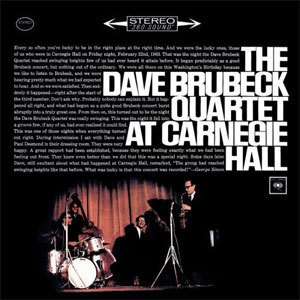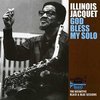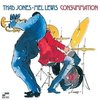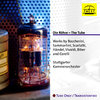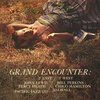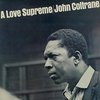AAA 100% Analogue This LP was Remastered using Pure Analogue Components Only from the Master Tapes through to the Cutting Head
Speakers Corner / Columbia C2S 826 - 180 Gram Virgin Vinyl - AAA 100% Analogue
Limited Edition - Pure Analogue Audiophile Mastering
AAA 100% Analogue - Pressed at Pallas Germany
Speakers Corner 30 Years Pure Analogue This LP is an Entirely Analogue Production
Superb Melodic Improvisation! Truly Majestic! One of the All Time Great Live Jazz Performances!
Highly recommended - HIFI +
Michael Fremer Rated 8/10 Music, 8/10 Sonics Analogplanet.
This is a great LP and I highly recommend it for the music, the performance, and the wonderful perspective of the live performance.- Dagogo Review
Dave Brubeck, designated a "Living Legend" by the Library of Congress, is one of the most popular musicians in both the jazz and classical worlds. With a career that spans over six decades, his experiments in odd time signatures, improvised counterpoint, polyrhythm and polytonality remain hallmarks of innovation.
Dave formed the Dave Brubeck Quartet with alto saxophonist Paul Desmond. The legendary Brubeck-Desmond collaboration lasted seventeen years and beyond. The Dave Brubeck quartet's recordings and concert The quartet's audiences were not limited to students, however.
The group played in jazz clubs in every major city. They repeatedly won top honors in trade magazines and critic's and reader's polls. At Carnegie Hall was recorded at the famed Carnegie Hall in New York City on February 21, 1963. It was described by critic Richard Palmer as "arguably Dave Brubeck's greatest concert" and a "truly majestic record that should be in every serious collection"; for Don Mather it is "one of the all time great live jazz performances." Ironically, original expectations for the concert were low.
Not only was drummer Joe Morello recovering from a case of the flu at the time, but New York had been suffering from a newspaper strike, and the group was worried that the attendance would be sparse. The worries were groundless: the hall was full; the group, whose long history together (the newest member, bassist Wright, had joined four years earlier) had by then made them extraordinarily close-knit, turned in an exciting, sparkling performance. It featured a remarkable level of co-ordination among the members of the group, at the same time as they display a relaxed yet powerful virtuosity.
"The band moves through all their hits and their new instincts gained ther standards such as 'Pennies From Heaven,' were literally harmonically reinvented by the intense counterpoint, double and even triple that went on between Desmond and Brubeck.
And that's what this set is a reflection of: the Brubeck band would have loved to be recorded live every night they played.
. While Take Five is rightfully a classic in that it changed everything, At Carnegie Hall reveals the band at the epitome of its musical -- harmonic, rhythmic, melodic, improvisational -- strength with near telepathic communication. It swings like a mother and offers an entirely new dimension to the definition of 'melodic improvisation.'"
How fortunate that the twelve brilliantly improvised numbers are now available once again on vinyl, having been recorded live at the legendary Carnegie Hall 60 years ago.
Highly recommended - HIFI +
Comparing this Speakers Corner reissue to an original black "360 Sound" 1A pressing favors the original, of course, which is more open and extended on top and allows the reverberant field to more fully flow and express itself. The Speakers Corner reissue is somewhat darker and veiled by comparison but without the original to compare it to, it's decent and very "analogue-y" sounding. And of course the Pallas pressing quality is superb. My used original gets "crunchy" in spots. - Michael Fremmer Stereophile
Recording: February 1963 Carnegie Hall, New York.
Musicians:
Dave Brubeck, piano
Paul Desmond, alto saxophone
Eugene Wright, bass
Joe Morello, drums
- Side 1:
1. St. Louis Blues
2. Bossa Nova U.S.A.
3. For All We Know
- Side 2:
1. Pennies From Heaven
2. Southern Scene (Briar Bush)
3. Three To Get Ready
- Side 3:
1. Eleven-Four
2. King For A Day
3. Castilian Drums
- Side 4:
1. It's A Raggy Waltz
2. Blue Rondo A La Turk
3. Take Five
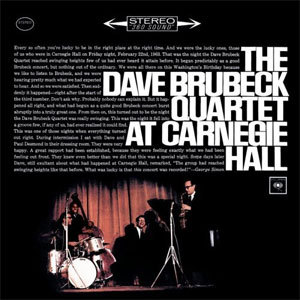
25 Years pure Analogue
Are your records completely analogue?
Yes! This we guarantee!
As a matter of principle, only analogue masters are used, and the necessary cutting delay is also analogue. All our cutting engineers use only Neumann cutting consoles, and these too are analogue. The only exception is where a recording has been made – either partly or entirely – using digital technology, but we do not have such items in our catalogue at the present time
Are your records cut from the original masters?
In our re-releases it is our aim to faithfully reproduce the original intentions of the musicians and recording engineers which, however, could not be realised at the time due to technical limitations. Faithfulness to the original is our top priority, not the interpretation of the original: there is no such thing as a “Speakers Corner Sound”. Naturally, the best results are obtained when the original master is used. Therefore we always try to locate these and use them for cutting. Should this not be possible, – because the original tape is defective or has disappeared, for example – we do accept a first-generation copy. But this remains an absolute exception for us.
Who cuts the records?
In order to obtain the most faithful reproduction of the original, we have the lacquers cut on the spot, by engineers who, on the whole, have been dealing with such tapes for many years. Some are even cut by the very same engineer who cut the original lacquers of the first release. Over the years the following engineers have been and still are working for us: Tony Hawkins, Willem Makkee, Kevin Gray, Maarten de Boer, Scott Hull, and Ray Staff, to name but a few.
At the beginning of the ‘90s, in the early days of audiophile vinyl re-releases, the reissue policy was fairly straightforward. Companies such as DCC Compact Classics, Mobile Fidelity, Classic Records and others, including of course Speakers Corner, all maintained a mutual, unwritten code of ethics: we would manufacture records sourced only from analogue tapes.
Vinyl’s newfound popularity has led many other companies to jump on the bandwagon in the hope of securing a corner of the market. Very often they are not so ethical and use every imaginable source from which to master: CDs, LPs, digital files and even MP3s.
Even some who do use an analogue tape source employ a digital delay line, a misguided ’80s and ‘90s digital technology that replaces the analogue preview head originally used to “tell” the cutter head in advance what was about to happen musically, so it could adjust the groove “pitch” (the distance between the grooves) to make room for wide dynamic swings and large low frequency excursions. Over time analogue preview heads became more rare and thus expensive.
So while the low bit rate (less resolution than a 16 bit CD) digital delay line is less expensive and easier to use than an analogue “preview head”, its use, ironically, results in lacquers cut from the low bit rate digital signal instead of from the analogue source!
Speakers Corner wishes to make clear that it produces lacquers using only original master tapes and an entirely analogue cutting system. New metal stampers used to press records are produced from that lacquer. The only exceptions are when existing metal parts are superior to new ones that might be cut, which includes our release of “Elvis is Back”, which was cut by Stan Ricker or several titles from our Philips Classics series, where were cut in the 1990s using original master tapes by Willem Makkee at the Emil Berliner Studios. In those cases we used only the original “mother” to produce new stampers.
In addition, we admit to having one digital recording in our catalogue: Alan Parsons’ “Eye in the Sky”, which was recorded digitally but mixed to analogue tape that we used to cut lacquers.
In closing, we want to insure our loyal customers that, with but a few exceptions as noted, our releases are “AAA”— analogue tape, an all analogue cutting system, and newly cut lacquers.
Audiophile Vinyl - Made in Germany For over 60 years the family business in the third generation of the special personal service and quality "Made by Pallas" is known worldwide. Our custom PVC formulation produces consistently high pressing quality with the lowest surface noise in the industry. Our PVC complies with 2015 European environmental standards and does not contain toxic materials such as Lead, Cadmium or Toluene. Our vinyl is both audiophile and eco-grade!
